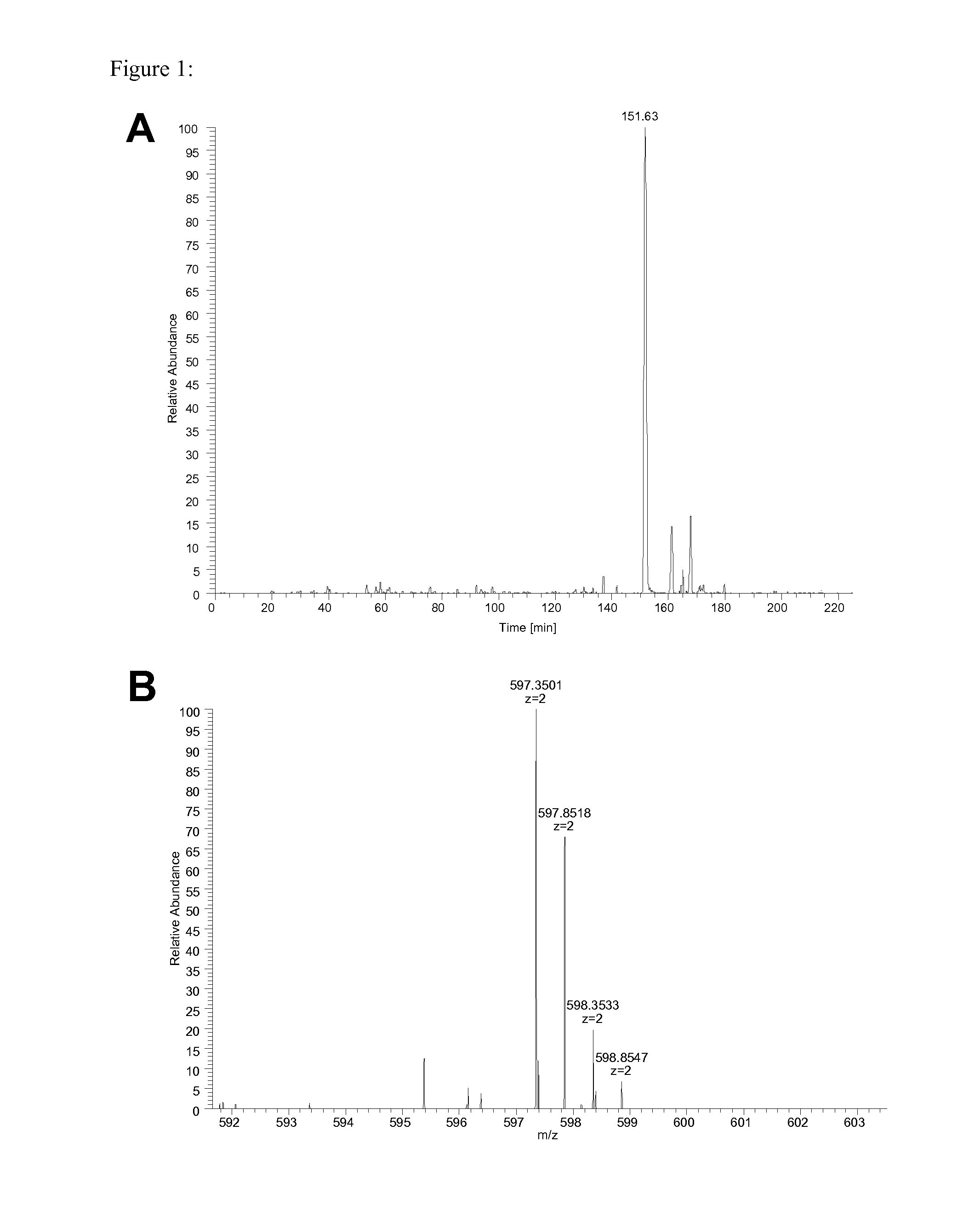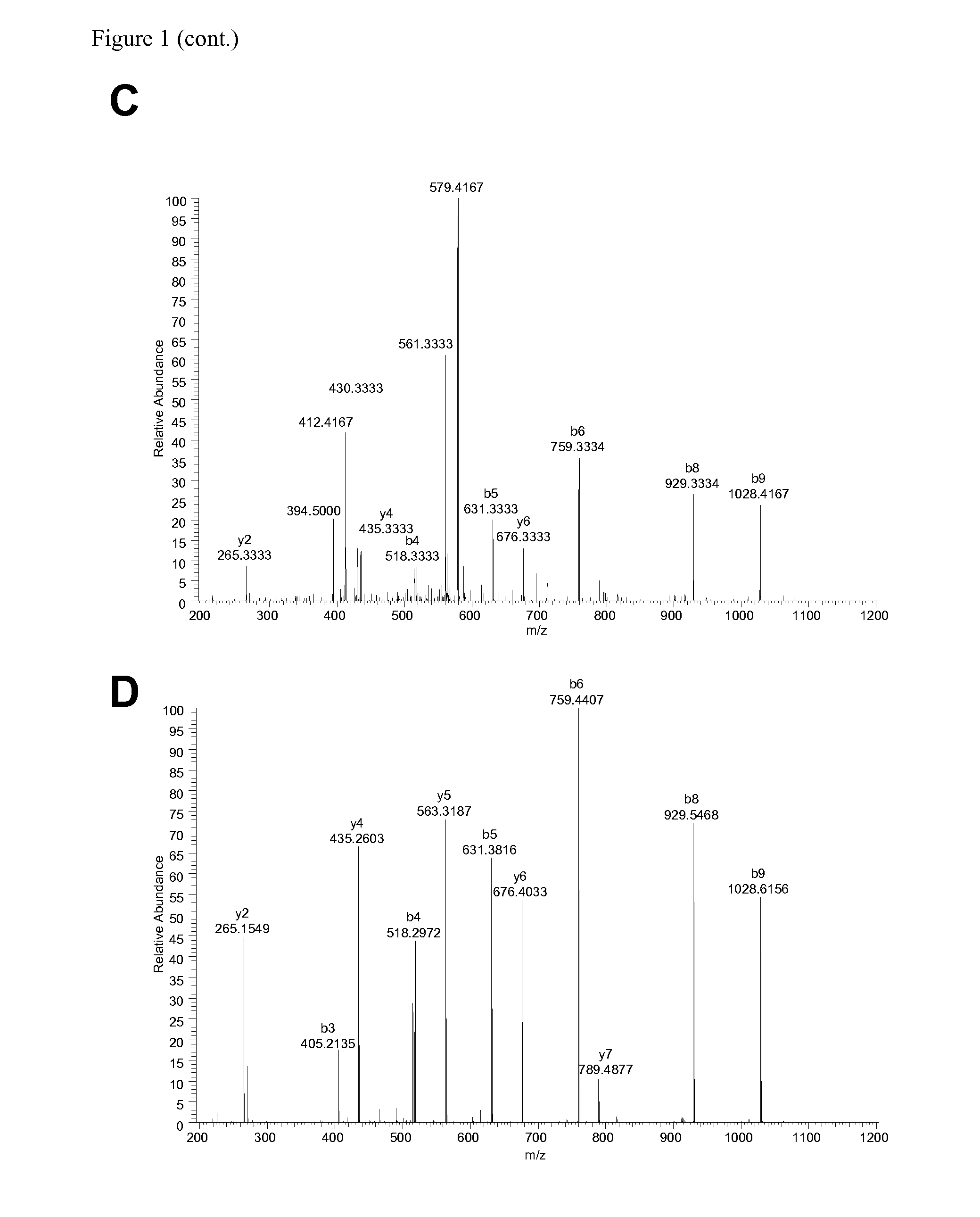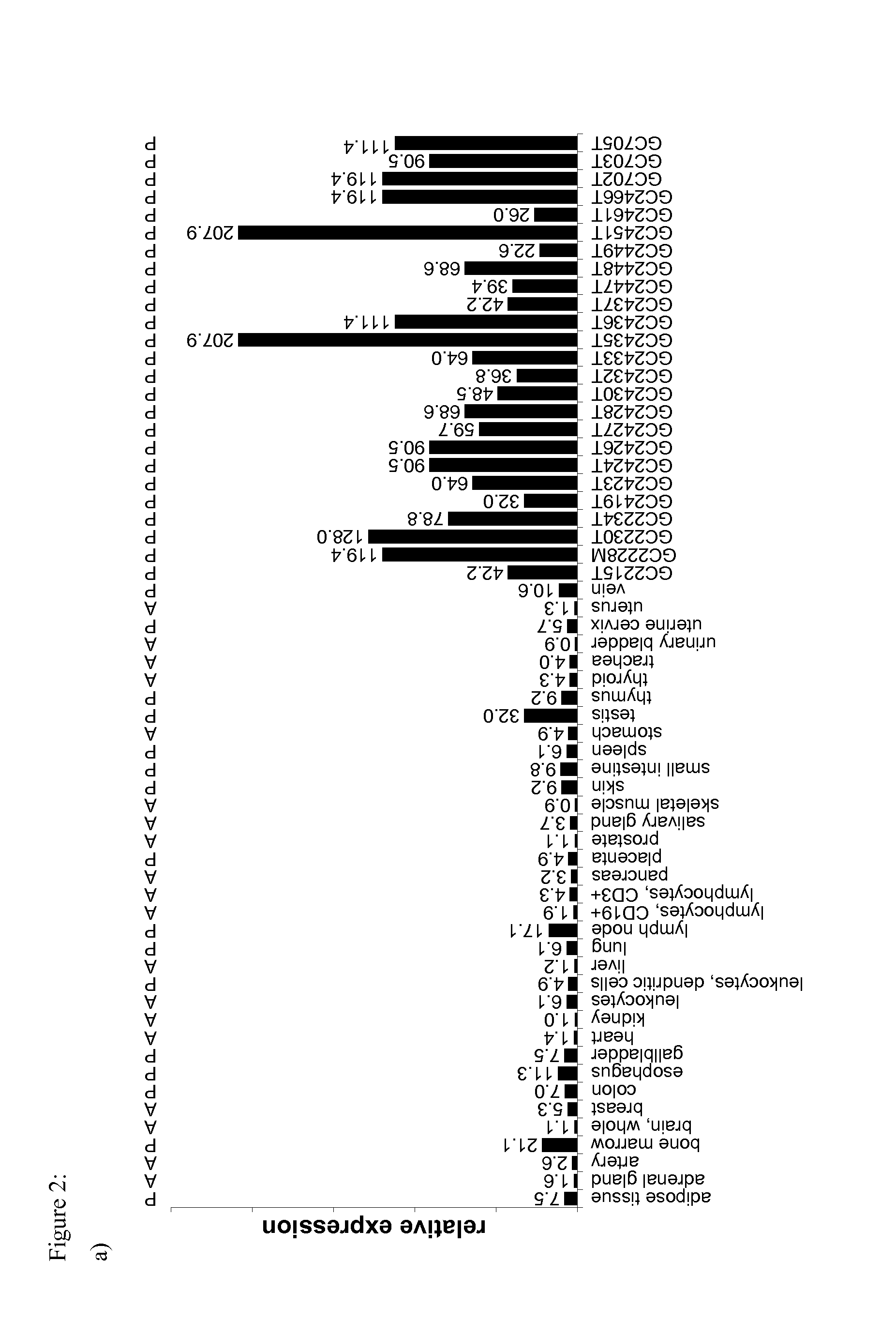Method for differentially quantifying naturally processed hla-restricted peptides for cancer, autoimmune and infectious diseases immunotherapy development
a technology of immunotherapy and naturally processed peptides, which is applied in the field of differential quantification of naturally processed hlarestricted peptides for cancer, autoimmune and infectious diseases immunotherapy development, can solve the problems of not being able to use the method for quantitation of said peptides, and quantitative data in the kind of way
- Summary
- Abstract
- Description
- Claims
- Application Information
AI Technical Summary
Benefits of technology
Problems solved by technology
Method used
Image
Examples
example 1
[0200]Presentation profile for an HLA class I peptide of PTPRZ1 (tyrosine phosphatase, receptor-type, Z polypeptide 1) which is part of a glioblastoma vaccine cocktail. Shown in red are tumor samples relative to normal tissue samples from different organs. Each bar represents the normalized median sample area for this peptide while the error bars show the minimum and maximum replicate area as indicators for the measurement variation.
example 2
CDC2-001
[0201]For the presentation profile for a gastric cancer associated TUMAP encoded by CDK1, reference is made to FIG. 5.
EXAMPLE 3
ASPM-002
[0202]For the presentation profile for a gastric cancer associated TUMAP encoded by ASPM reference is made to FIG. 6.
[0203]MHC Protein Expression in Different Tissue Entities
[0204]The inventors analyzed expression of MHC molecules in different tissue entities to know about the range of MHC expression levels using beta-2-microglobulin as representative compound of the ternary MHC alpha chain / beta-2-microglobulin / peptide complex (see FIG. 7).
[0205]Relative MHC expression (b2m / beta actin) varies only by a factor of 5 around the median value b2m / beta actin=0.52 and thus is relatively constant between different tissue entities. This range is narrow enough for a normalization based on mass spectrometry data.
[0206]Normalization of MHC amounts based on mass spectrometry as compared to western blotting (WB)
TABLE 2Comparison of WB-based and MS-base...
example 3
[0222]In Vitro Immunogenicity for IMA941 MHC Class I Presented Peptides
[0223]To get information regarding the immunogenicity of the TUMAPs of the present invention, we performed investigations using a well established in vitro stimulation platform already described by (Walter, S, Herrgen, L, Schoor, O, Jung, G, Wernet, D, Buhring, H J, Rammensee, H G, and Stevanovic, S; 2003, Cutting edge: predetermined avidity of human CD8 T cells expanded on calibrated MHC / anti-CD28-coated microspheres, J.Immunol., 171, 4974-4978). This way we could show immunogenicity for 32 HLA-A*2402 restricted TUMAPs of the invention demonstrating that these peptides are T-cell eptiopes against which CD8+ precursor T cells exist in humans (Table 3).
[0224]In Vitro Priming of CD8+T Cells
[0225]In order to perform in vitro stimulations by artificial antigen presenting cells (aAPC) loaded with peptide-MHC complex (pMHC) and anti-CD28 antibody, we first isolated CD8 T cells from fresh HLA-A*24 leukapheresis products...
PUM
| Property | Measurement | Unit |
|---|---|---|
| retention time | aaaaa | aaaaa |
| HPLC- | aaaaa | aaaaa |
| fragment spectra clustering | aaaaa | aaaaa |
Abstract
Description
Claims
Application Information
 Login to View More
Login to View More - R&D
- Intellectual Property
- Life Sciences
- Materials
- Tech Scout
- Unparalleled Data Quality
- Higher Quality Content
- 60% Fewer Hallucinations
Browse by: Latest US Patents, China's latest patents, Technical Efficacy Thesaurus, Application Domain, Technology Topic, Popular Technical Reports.
© 2025 PatSnap. All rights reserved.Legal|Privacy policy|Modern Slavery Act Transparency Statement|Sitemap|About US| Contact US: help@patsnap.com



